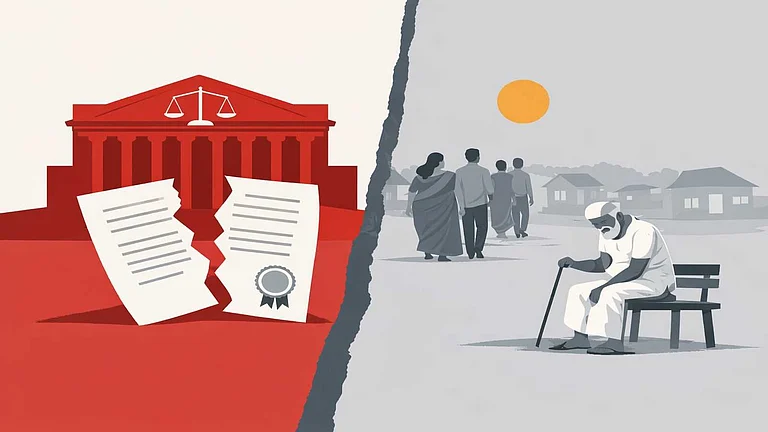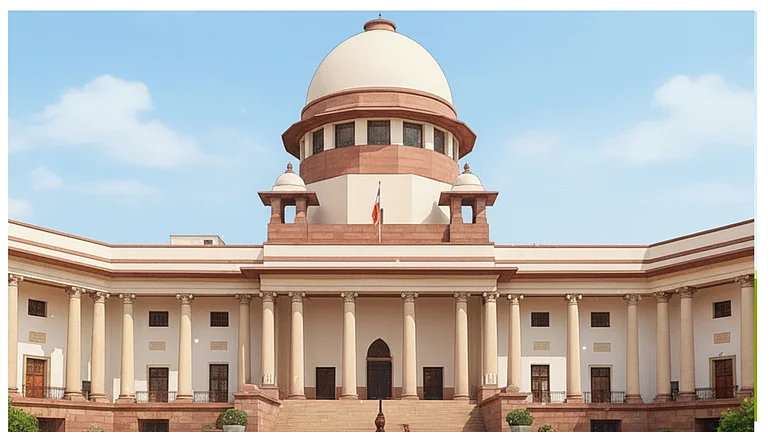
Summary of this article
Supreme Court rules Hindu Succession Act not applicable to notified Scheduled Tribes.
The ruling strikes down Himachal Pradesh High Court's previous directive.
Emphasises Section 2(2) of the Hindu Succession Act, 1956 to clarify HSA's applicability
In a recent judgment on October 23, 2025, the Supreme Court of India reaffirmed that the Hindu Succession Act, 1956, does not apply to members of Scheduled Tribes unless notified by the Central Government. The apex court struck down a directive issued by the Himachal Pradesh Court that the provisions of the Hindu Succession Act are applicable to the tribal communities of the State. The Supreme Court clarified the provisions, Section 2(2) of the Hindu Succession Act (HSA), 1956, and several other related judgments in this regard.
What Is Section 2 Of The HSA?
Section 2(1) of the Act is about who this Act covers. Per it, the Act applies to any person who is a Hindu by religion in any of its forms, including Virashaiva, Lingayat, Brahmo, Prarthana, Arya Samaj, a Buddhist, Jain, or Sikh by religion, and to any other person who is not a Muslim, Christian, Parsi, or Jew by religion.
Section 2(2) reads: “Notwithstanding anything contained in sub-section (1), nothing contained in this Act shall apply to the members of any Scheduled Tribe within the meaning of clause (25) of Article 366 of the Constitution unless the Central Government, by notification in the Official Gazette, otherwise directs.”
Section 2(2) was taken into consideration, in particular in this case, to clarify the definition of who is covered or not covered under HSA.
Case Background
The matter pertains to the daughters’ rights in the tribal communities in the State. In the order dated June 23, 2015, passed by the Himachal Pradesh High Court, the Court held that the daughters in the tribal areas must inherit property per the HSA, and per their local customs and usage. The order stated that “The laws must evolve with the times if societies are to progress. It is made clear by way of abundant precaution that the observations made hereinabove only pertain to the right to inherit the property by the daughters under the Hindu Succession Act, 1956, and not any other privileges enjoined by the trial in the tribal areas.”
While the parties claimed to be Hindus, the Court identified them as members of the Sawara tribe, notified as a Scheduled tribe under Article 342 of the Constitution of India.
Now, the civil appeal was against this impugned judgment’s one aspect, para 63, which was about HSA’s applicability to the Sawara scheduled tribe.
Supreme Court Observation
The Supreme Court examined the concerned provisions of law and previous judgments, and concluded that the High Court’s direction could not stand because the members are part of a notified Scheduled Tribe.
It stated, “The words of the section are explicit. The HSA, 1956, cannot apply to scheduled tribes. This position of law is well settled. We may reproduce with profit the observations made in certain judgments of this Court.”
It clarified that only the President of India can amend the list of the notified tribes, and since Sawara is a notified one, and there is no evidence showing its de-notification, the HSA could not be applied.
Court Order
Observing that the high court directions were procedurally improper, the Supreme Court ruled in favour of the appellants. The Court ordered that para 63 of the impugned order by the High Court in 2015, which directed applying HSA to tribal daughters, be set aside and struck down from the record. The civil appeal was then disposed of.


















